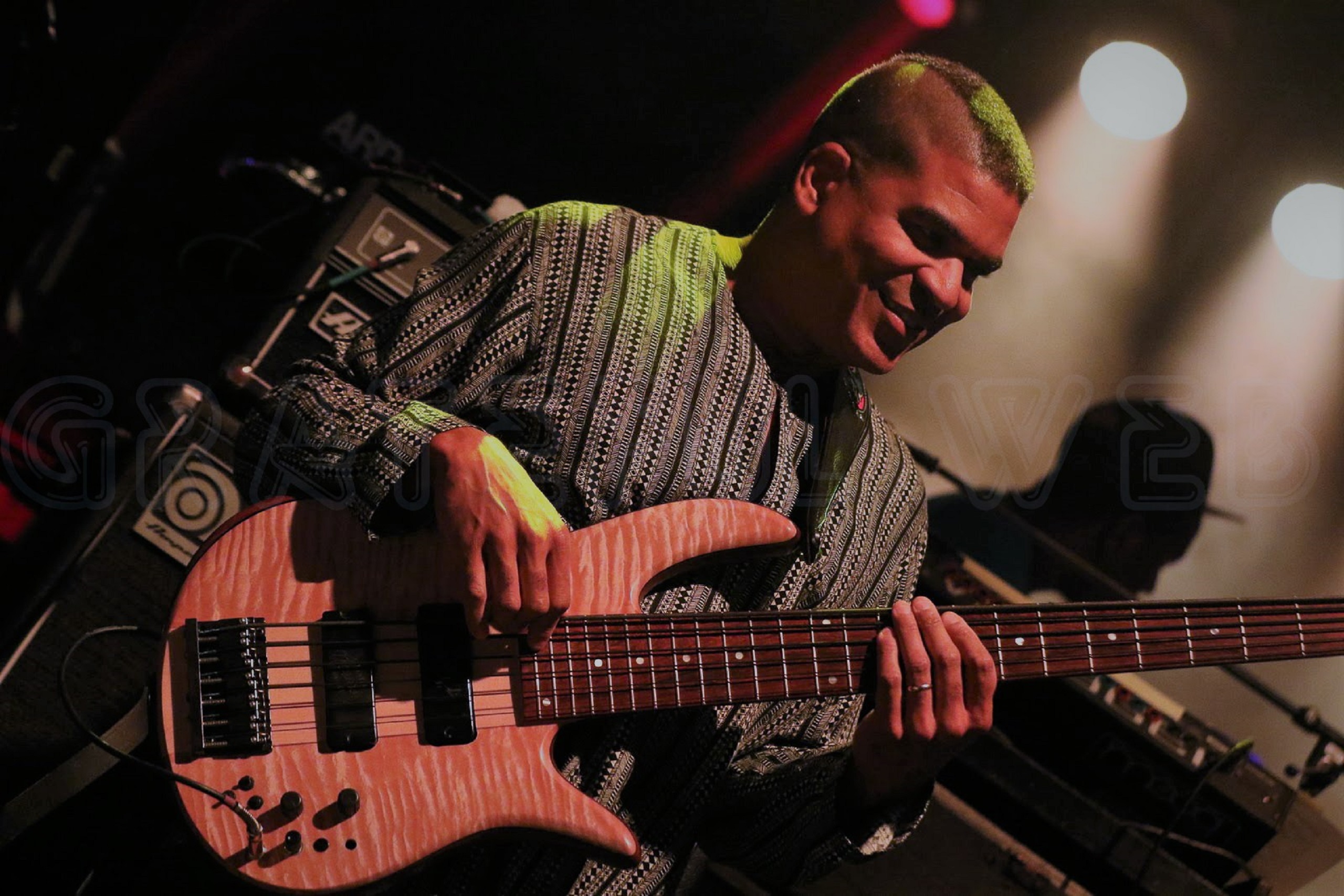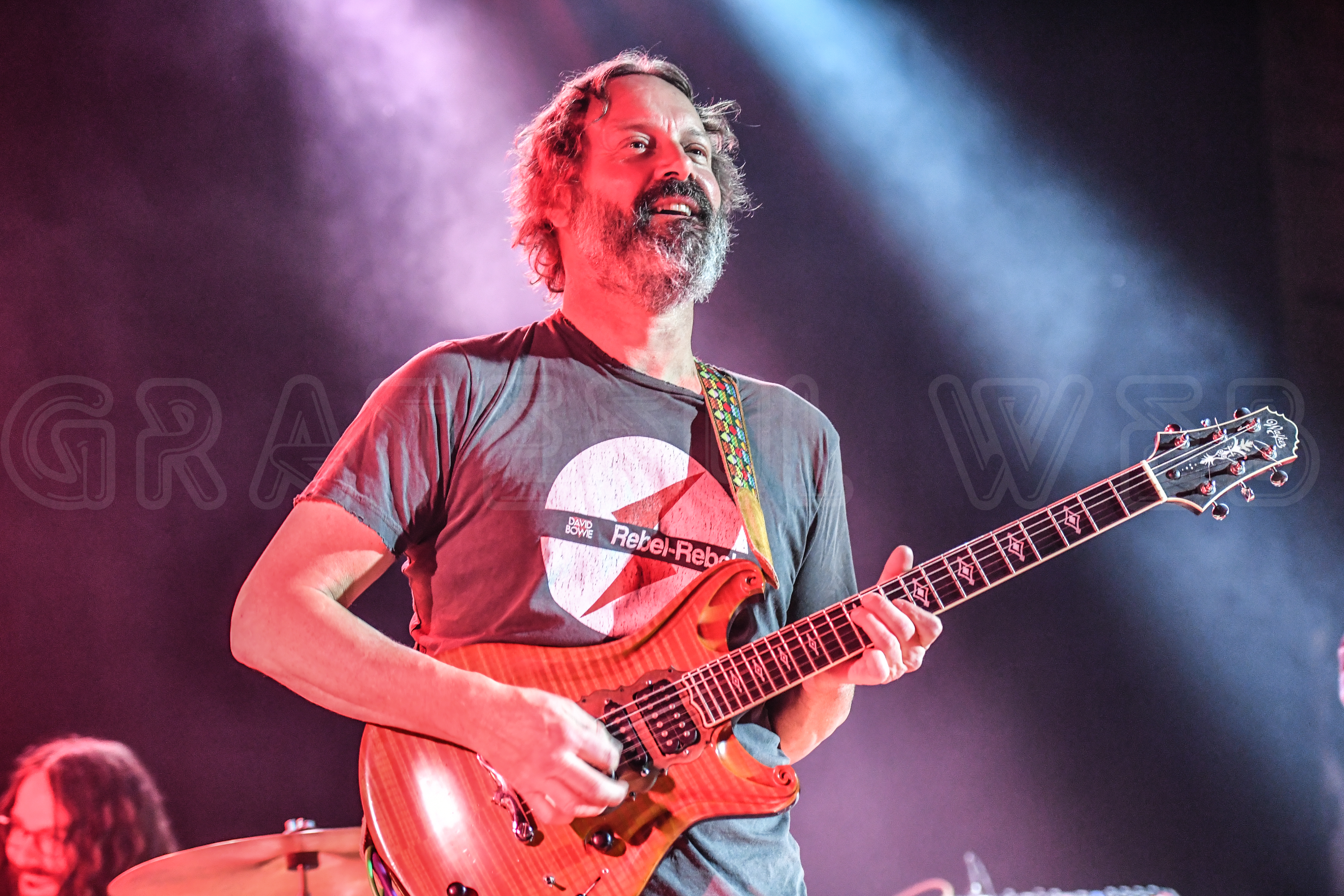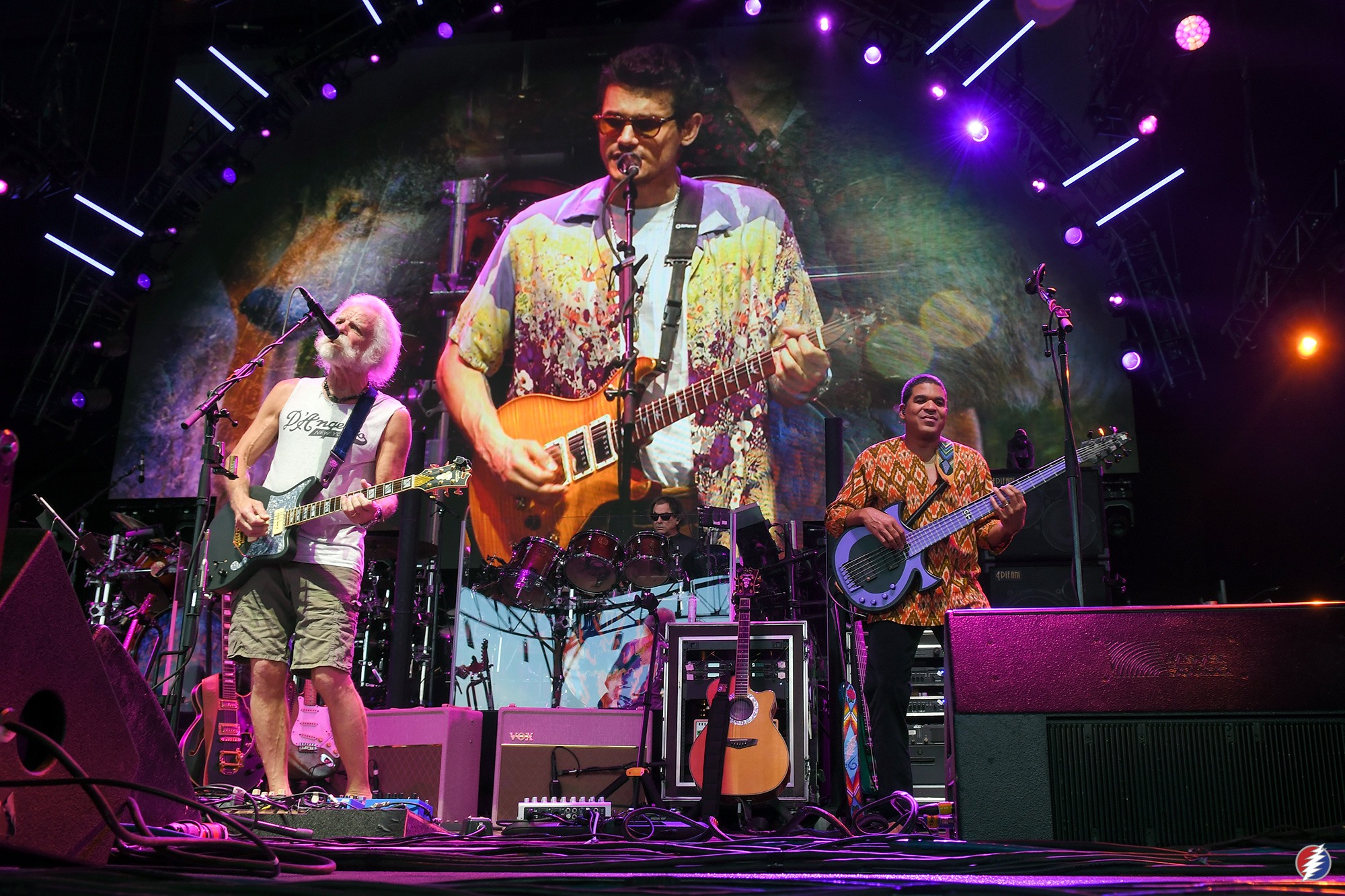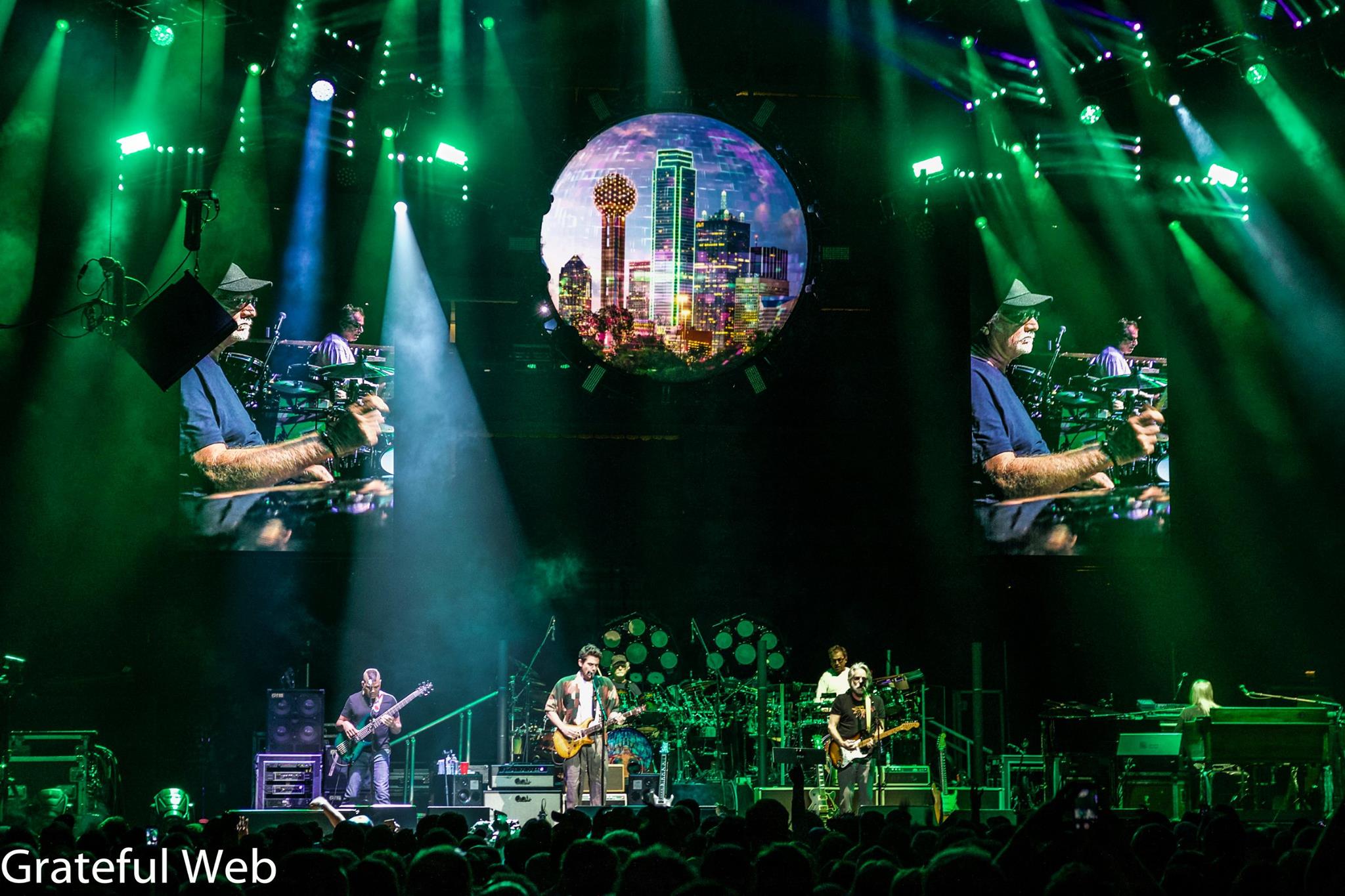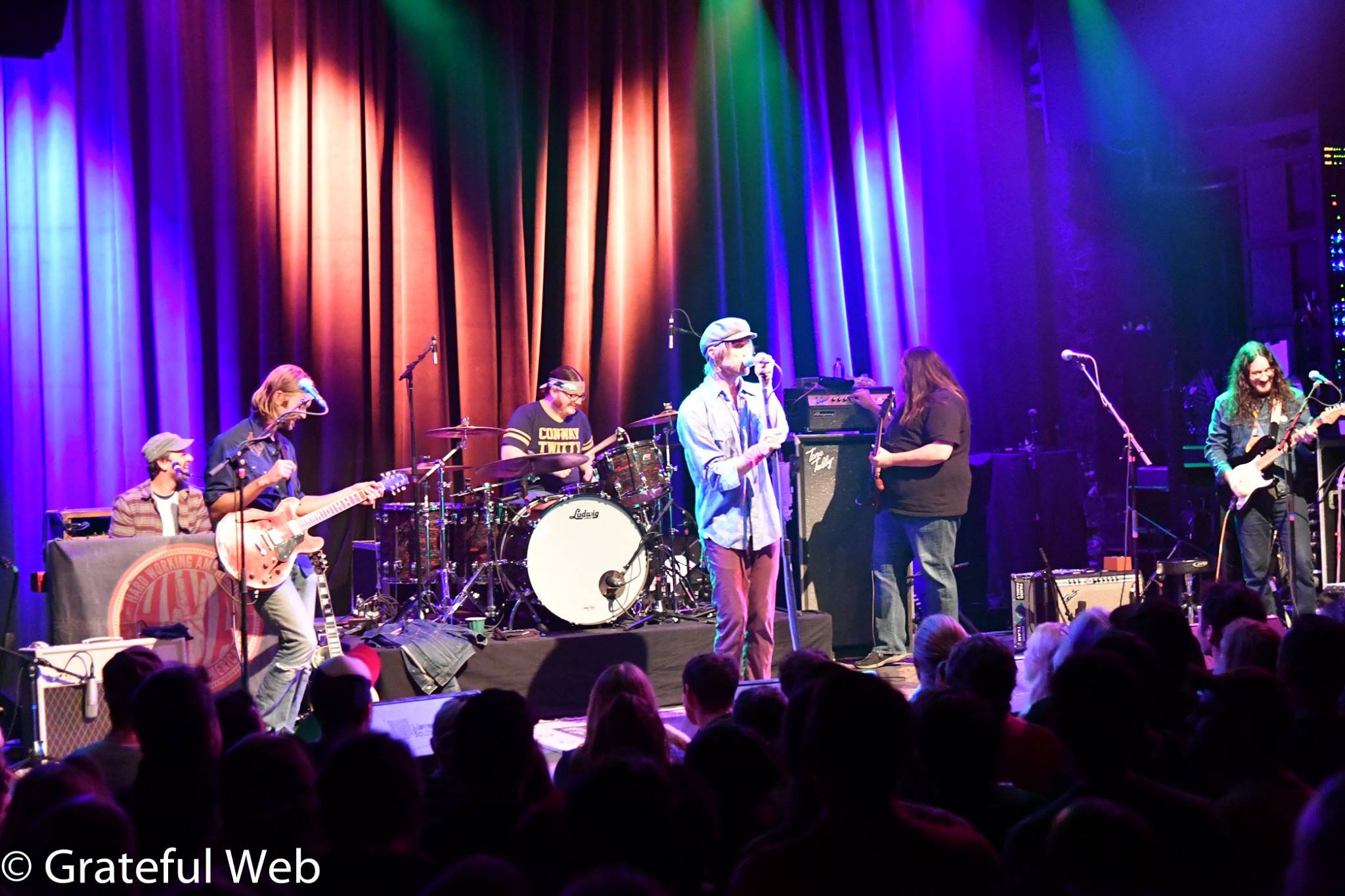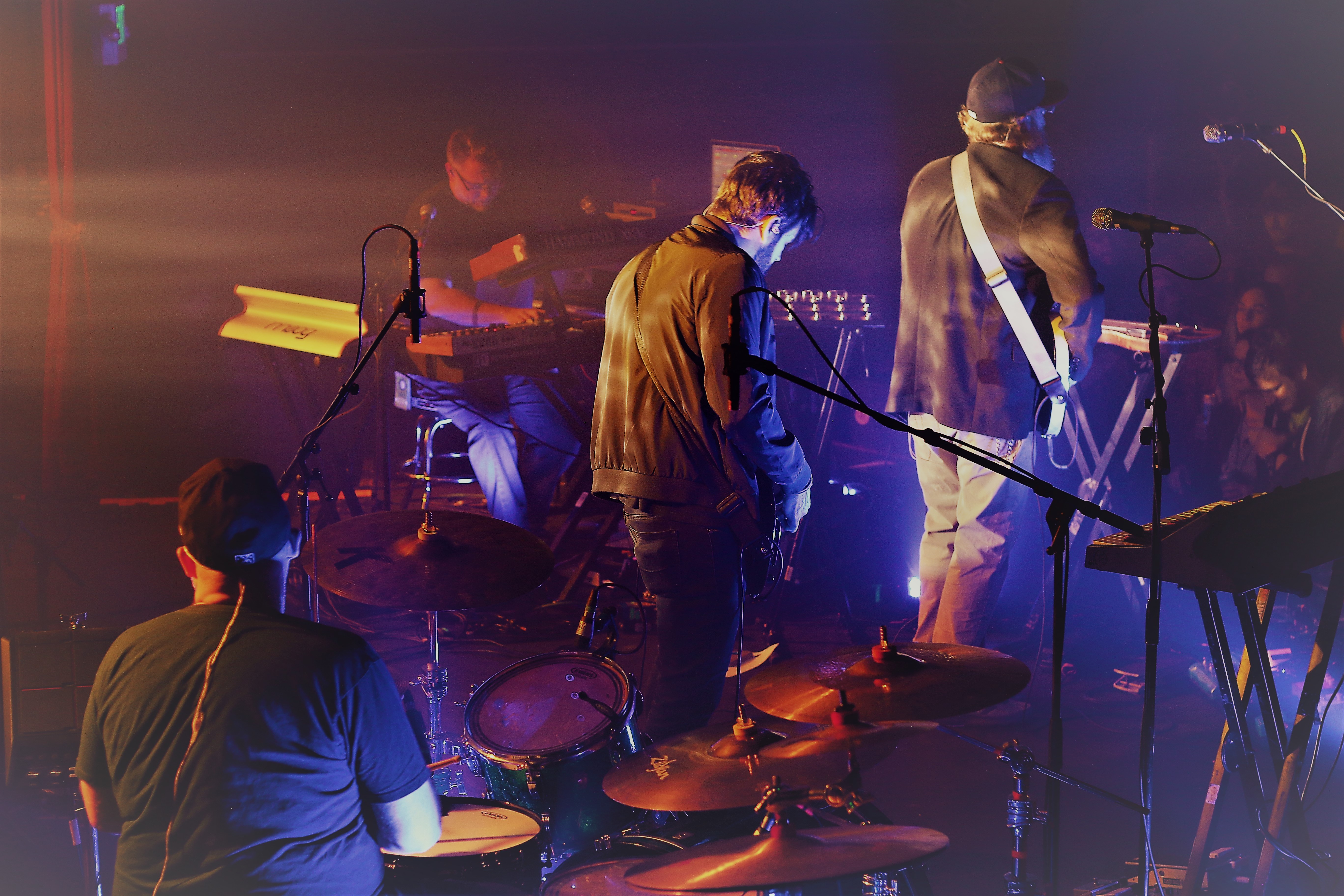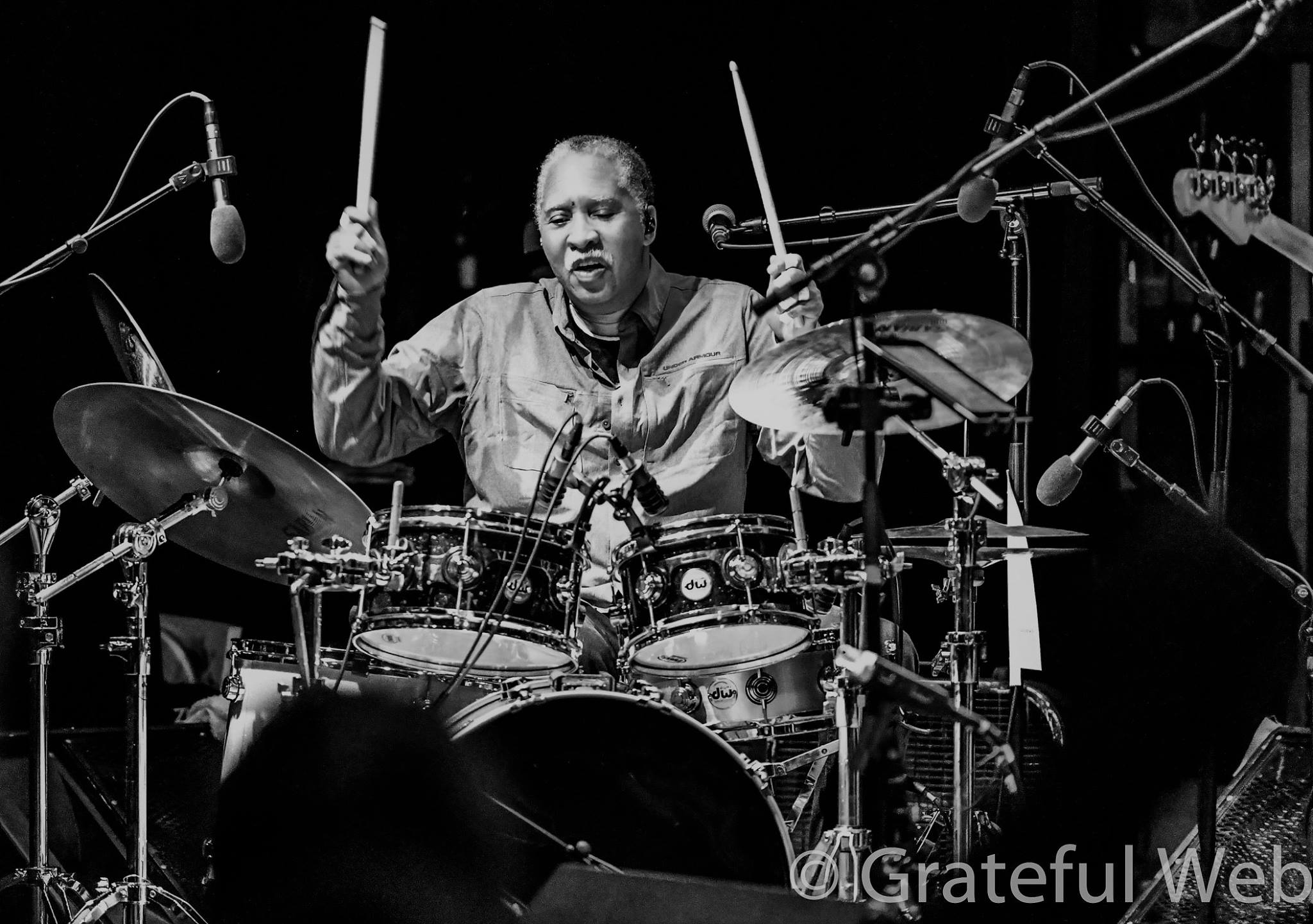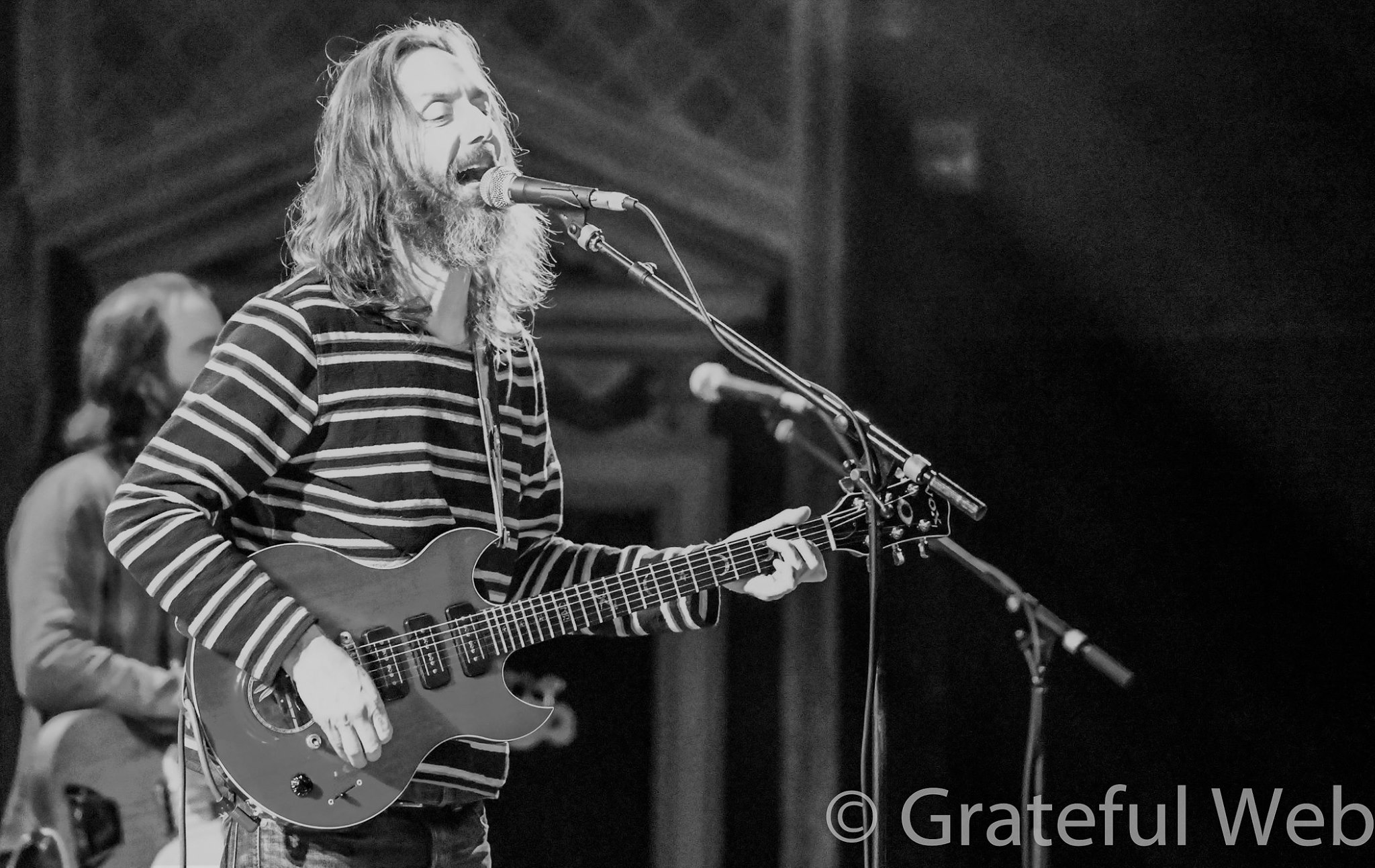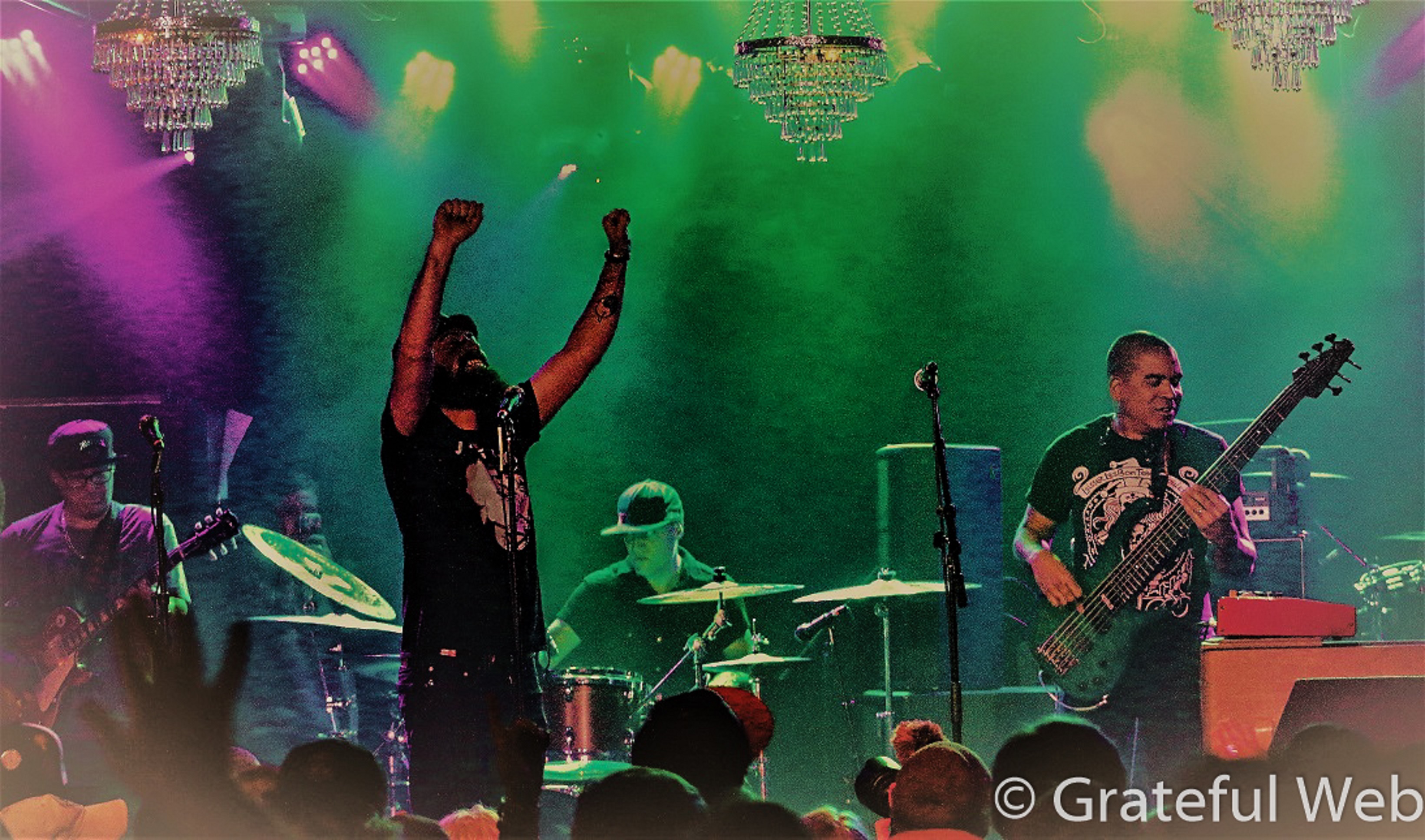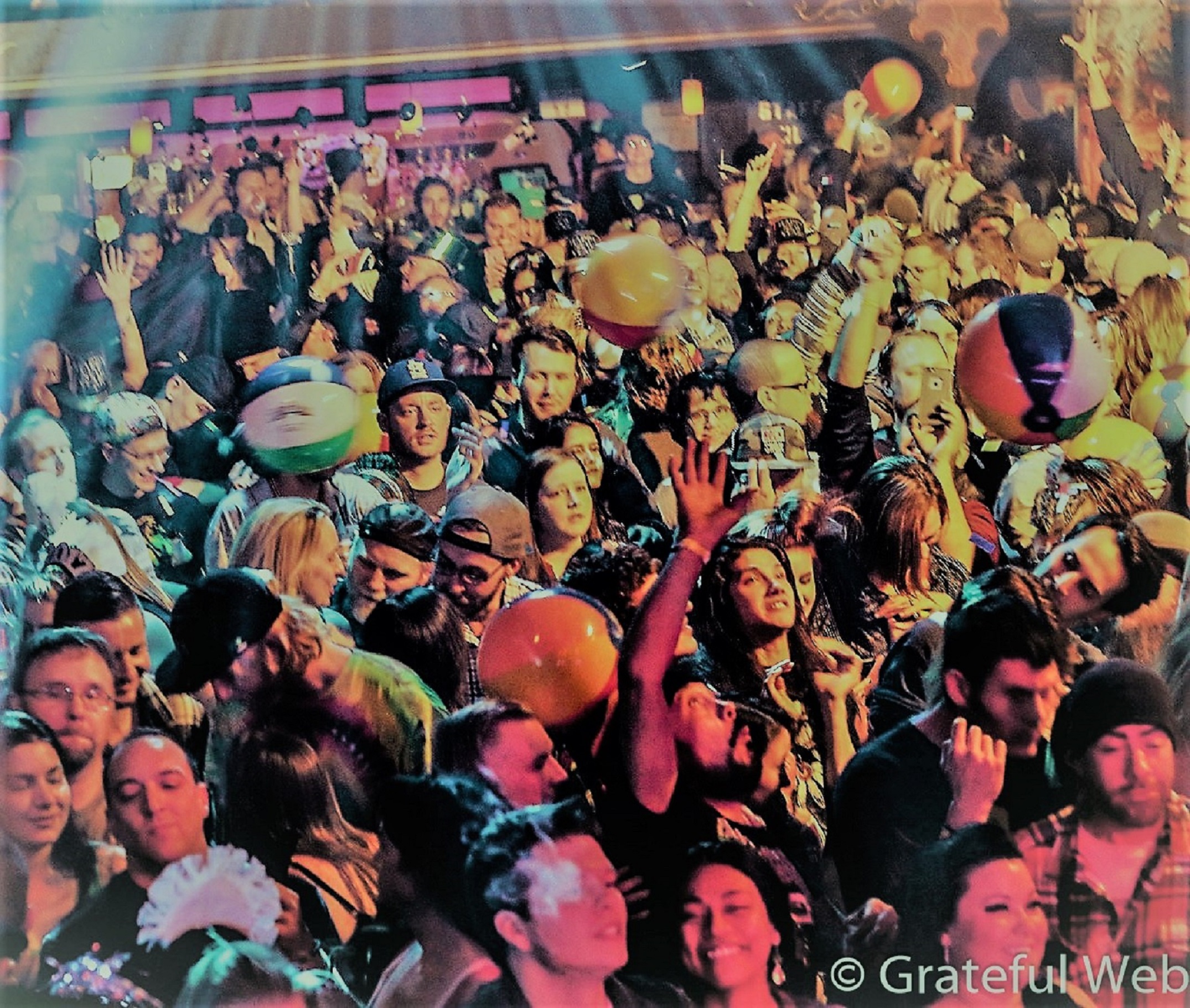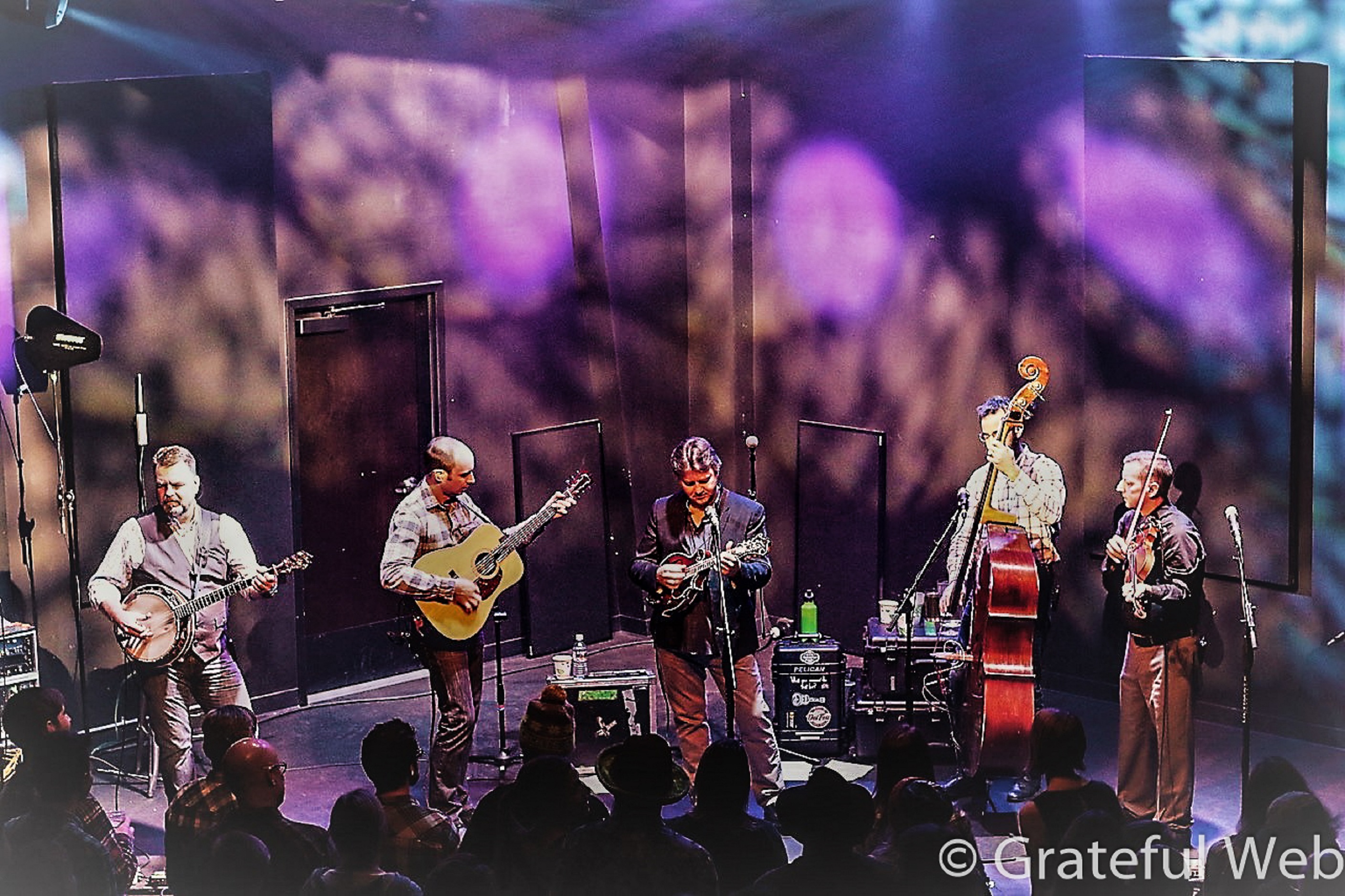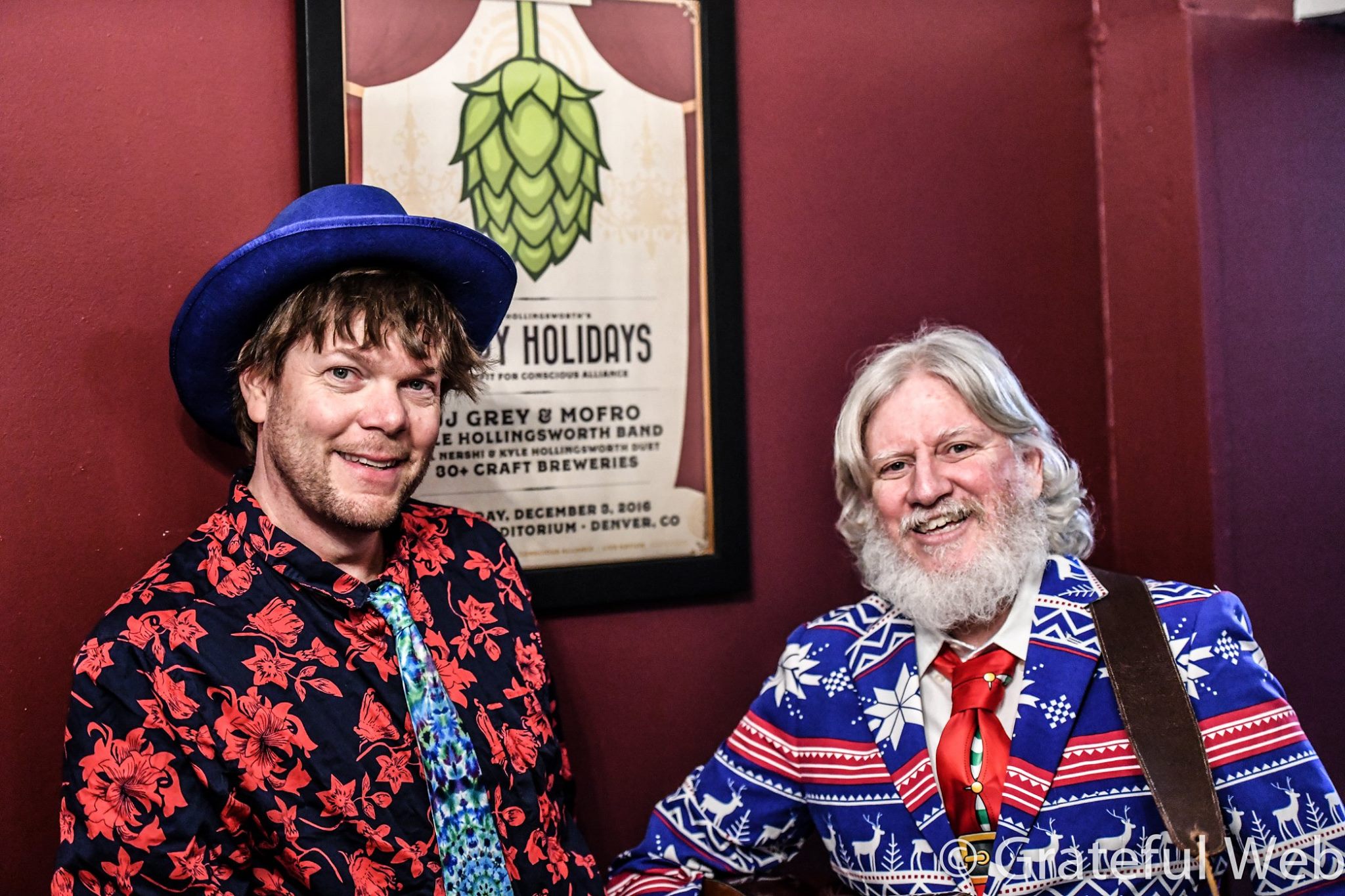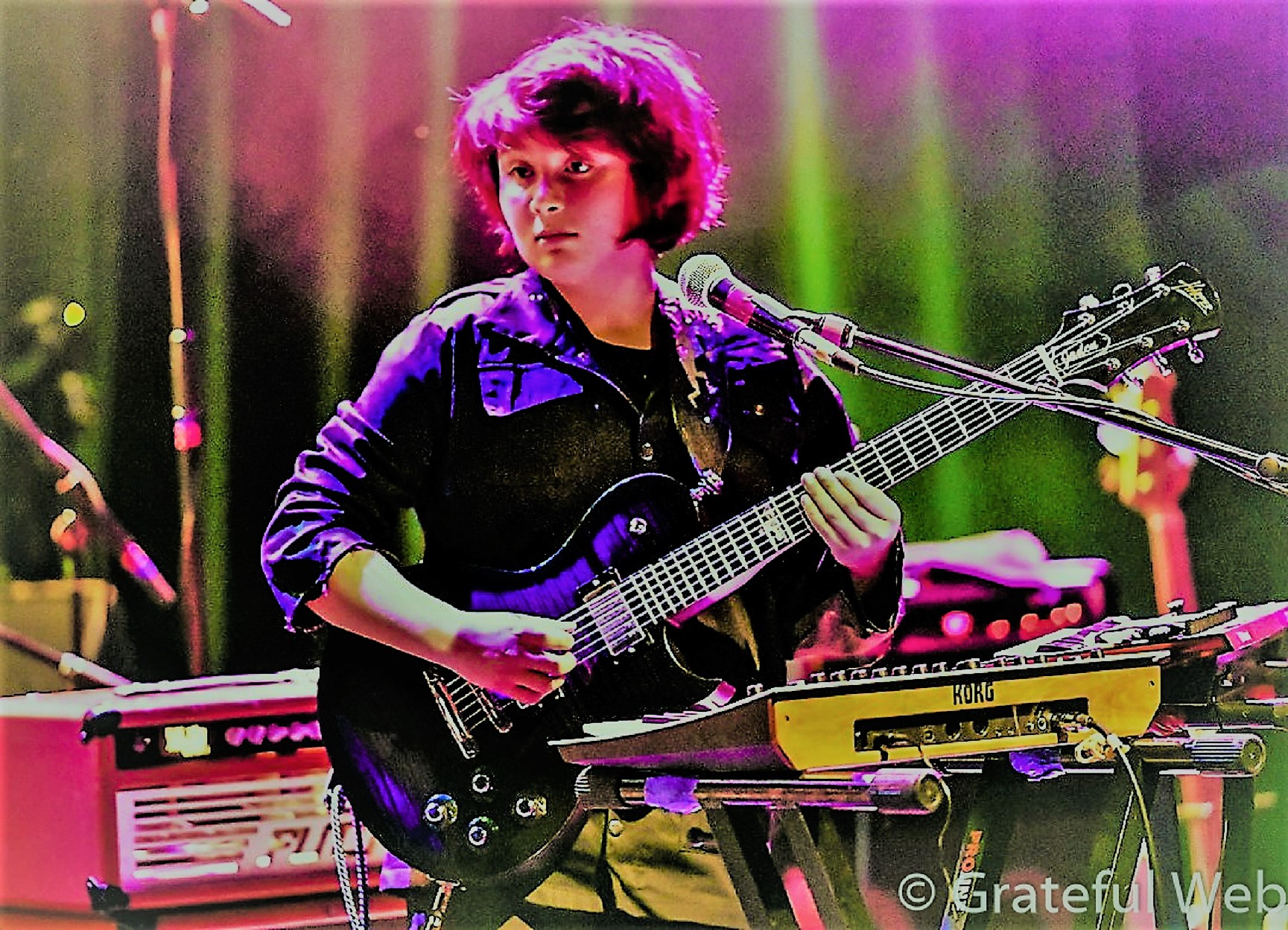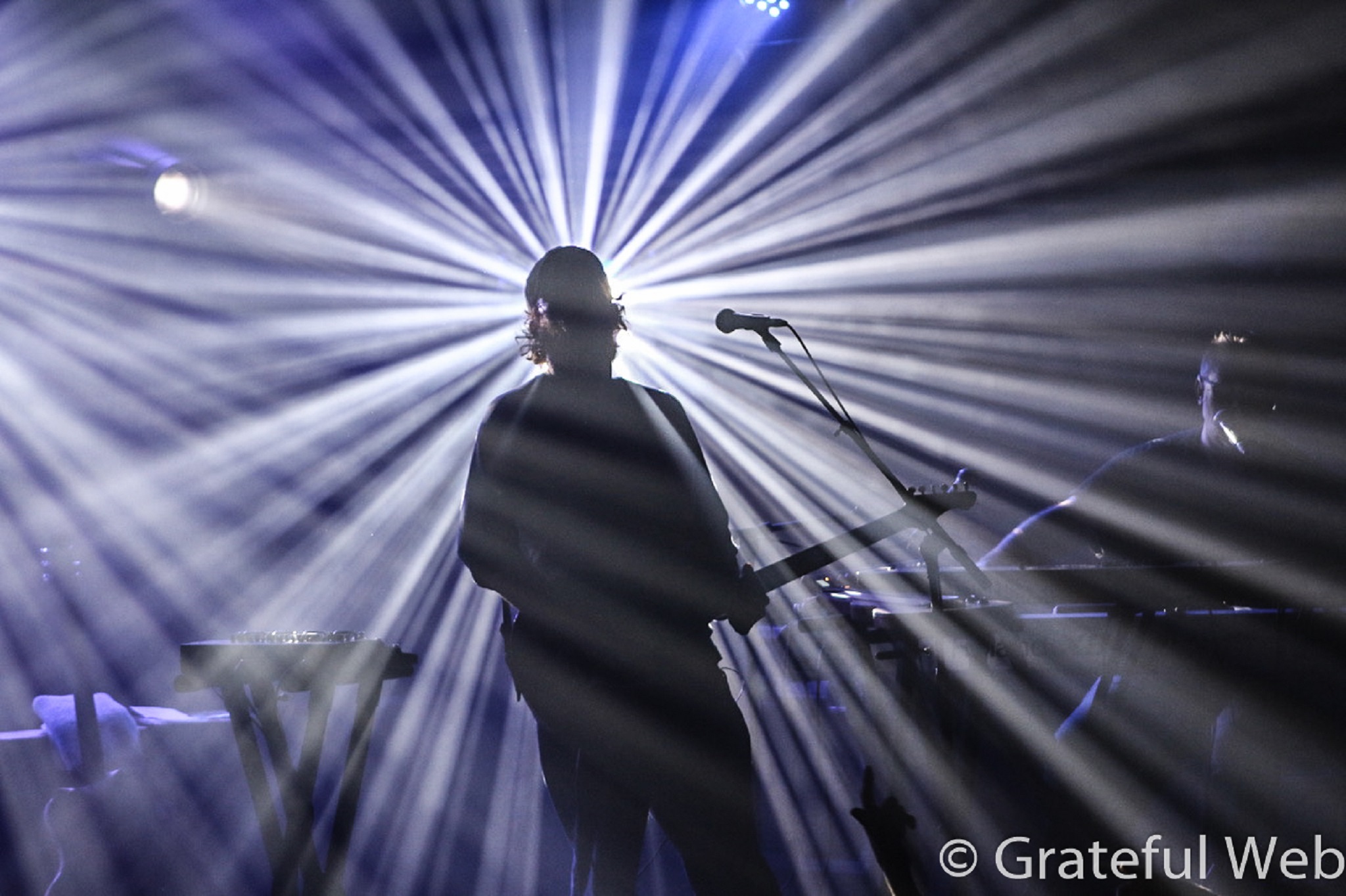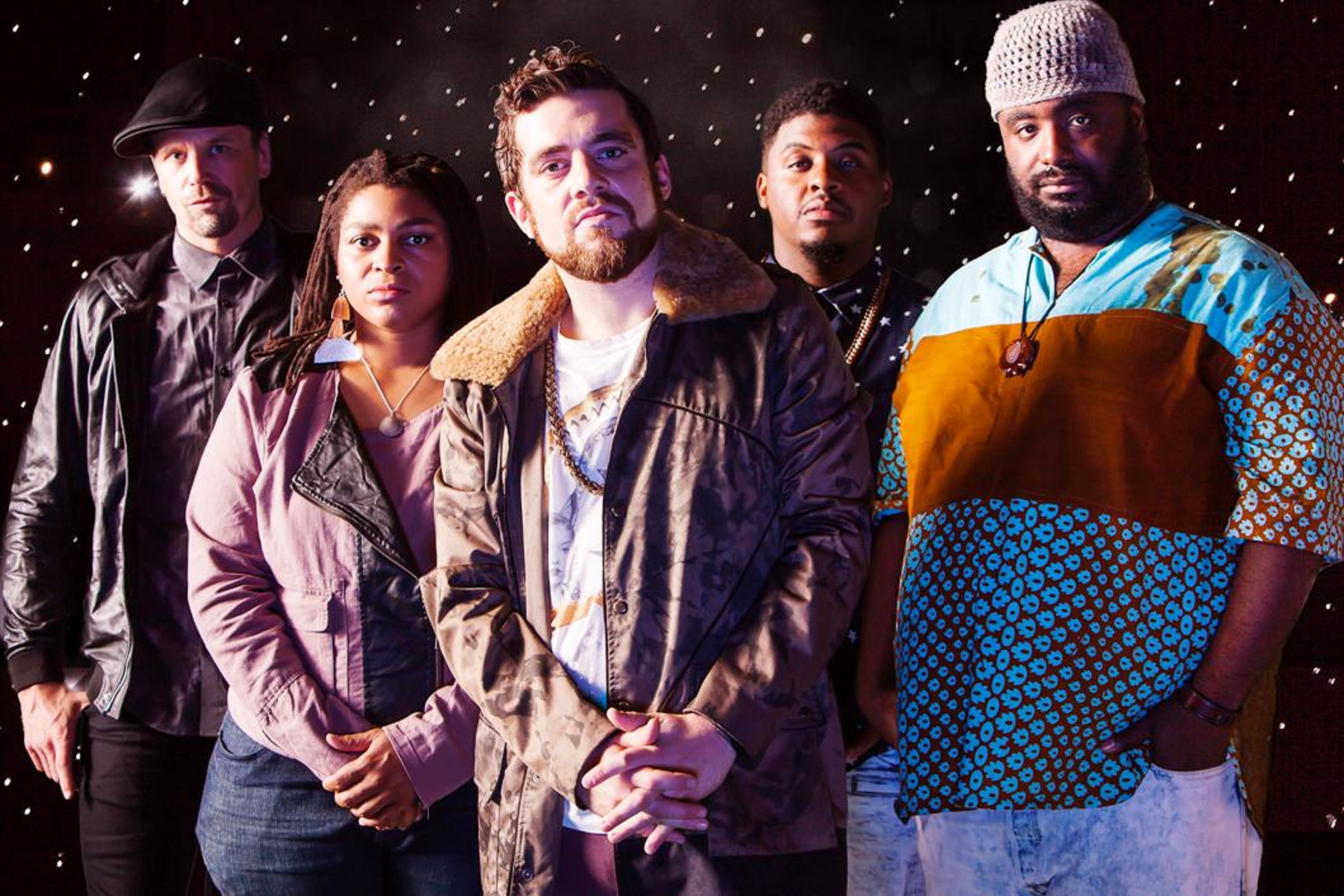While no longer touring with Tedeschi Trucks Band or the newly retired Allman Brothers Band, Oteil Burbridge is still finding balance between his family life and career. As one of the most recognizable bass players to crisscross the jam band web and beyond, this isn’t as easy as it seems. While he will be hitting the road this summer with the Aquarium Rescue Unit, weekend gigs and festivals are those that allow him to be with his young son and wife the most. These are fortunately becoming more common, with promoters putting together super jams and one-off lineups of musicians they think would fit together much in the same way you’d put together a fantasy sports team. It’s been happening at Jam Cruise and New Orleans Jazz Fest for years, but what was once reserved for late-night Phish after parties is now a concept booked all over the country. For musicians like Oteil it’s mutually beneficial, as he gets to work the weekends and be home with his family during the week. On top of that it’s introducing musicians from every background to one another. This cross-pollination is in the essence of creativity and spontaneity, and fits a player like Oteil, who’s been schooled by some of the greats over a fruitful career that kick started with Col. Bruce Hampton and the Aquarium Rescue Unit twenty six years ago. It now comes full circle as Oteil and ARU embark on a tragic-comedy thrill ride through music and life itself starting late-July in Colorado. Oteil recently chatted with the Grateful Web’s John Schumm about getting back together with his old band, his family, career, and canoeing down the cosmic web that is the modern touring industry.
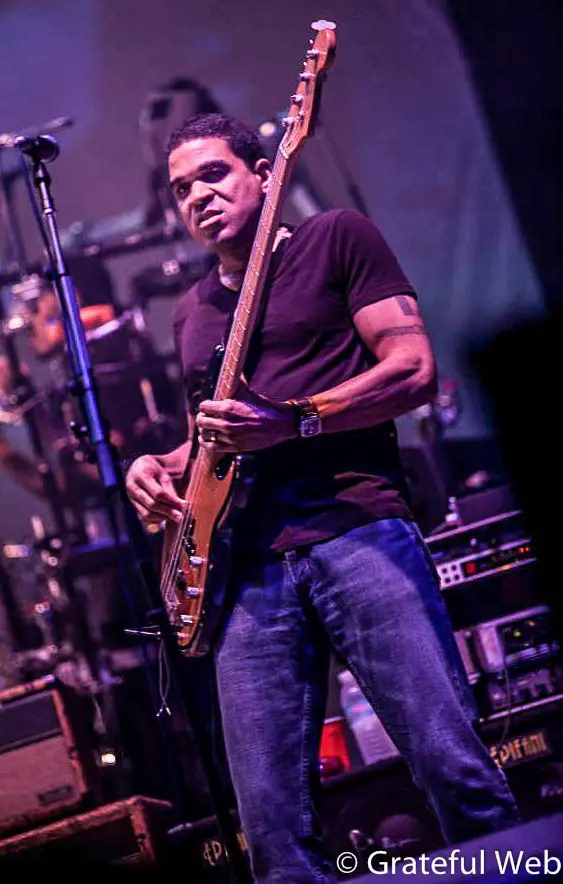
GW: This is John Schumm with the Grateful Web and I’ve got Oteil Burbridge with me. We were just talking about BB King’s music, as he passed away this morning. Before we get going, is there anything you’d like to say about BB? It seems like he got to everybody in some way.
OB: I mean, what can you say? I’m smiling ear-to-ear listening to him. He’s such a great person and I think I said it all on my Facebook page. Just considering the time and place he was born, it’s amazing that he could come through all of that and- aside from his career- to just not be bitter. But then you think about all he did, all the people he made happy and becoming known all over the world, loved all over the world. It’s just amazing. He had so much humility. His humility was as big as his iconic stature. He and Willie Nelson are the only two people I’ve met personally who are like that, where you really get that from them. It’s just so huge; it’s unbelievable.
GW: It’s one of my great regrets not being able to see him perform.
OB: Man, my wife and I bought tickets to see him at The Fox Theater. It was the first time I had seen him play live and he was telling old stories most of the night. It was like, ‘wow, you’re an icon.’ I was so blessed to see him live before he passed, he and Bobby “Blue” Bland. I’m really grateful for that.
GW: Which is saying a lot, because you’ve played with bands like The Allman Brothers, Tedeschi Trucks, Aquarium Rescue Unit, the list goes on and on.
OB: (Laughter) Yeah but BB King, he’s on another level. All of those people you mentioned, BB King is their hero, The Allman Brothers and everyone else.
GW: Did you listen to much BB growing up, were you into that type of music?
OB: No, not at all. I was way more into funk and jazz and fusion when I was younger. Col. Bruce had really helped me appreciate blues starting way back in the old acoustic, delta blues period, and that’s what helped me understand the electric blues. If you didn’t have chops like John McLaughlin and Allan Holdsworth, then it went right by me, but I was younger and thank god I met the Col. because I never would have been so into bluegrass and delta blues and all the stuff that evolved out of that music, all of the gospel and everything. All that music really helped me understand and appreciate it.
GW: I had a chance to speak with Col. Bruce a few weeks ago when I was down in New Orleans. He can be equal parts hilarious, sensitive, fortuneteller, you name it. When did you first meet Col. Bruce, and you just mentioned how he influenced you musically, but what does he mean to you to this day?
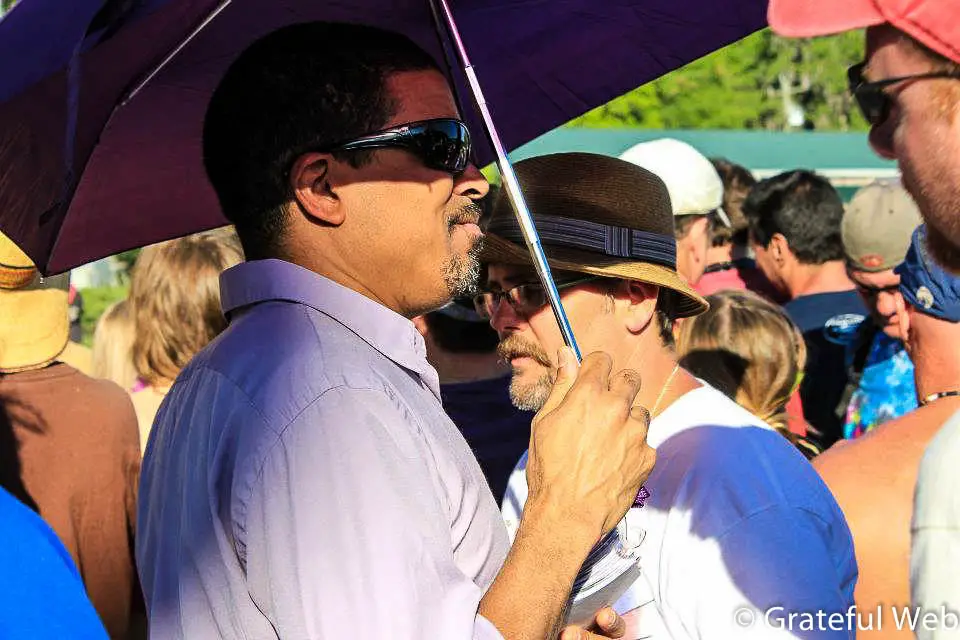
OB: I met him at a period where I was very frustrated with music, and seeing how he viewed music was such a relief. I was completely down on this planet and on myself, you know, and he was like, ‘this place is crazy, dark, and if you’re not down and feeling bewildered by all of this then you really are crazy, you should be shocked and appalled at what you’re seeing (laughter).’ But he also showed me the beauty. And he showed me what was funny about it and taught me to embrace the tragedy, but not to get so caught up in the tragedy that you miss the beauty and the hilariousness. He wanted all of that to come out in your music. He wanted you to embarrass yourself, stub your toe, be funny, be serious, be in pain, be in joy, be hopeful, be pessimistic; he wanted all of it. And I think that was a lasting thing for me, he changed the way I look at music and at life.
GW: I know you got back with the Col. and Jimmy Herring and maybe even Sipe down in New Orleans during Jazz Fest, and you guys are going to be touring once again as Aquarium Rescue Unit. Obviously that was such a long time ago when you guys first got started, but what’s it like getting back on stage with these guys? What’s different about it these days besides years of new experience?
OB: (Laughter) We’re old men now! I was in my early twenties and barely my mid-twenties when that happened, and I’m way more at ease in my own skin now. I think it’s kind of hard for us to think that twenty-six years have passed. It’s a little bit unnerving. Like wow, are you kidding? But you’ve got to accept it. It’s real. But I don’t know, I feel much better now than I did then; but that’s just from being older. It’s really great to get back together with them and just laugh about things because that’s a big part of what I remember about hanging with the Col. and that whole time. It wasn’t just the music, it was how much I laughed about everything; it was just like the way he looks at life.
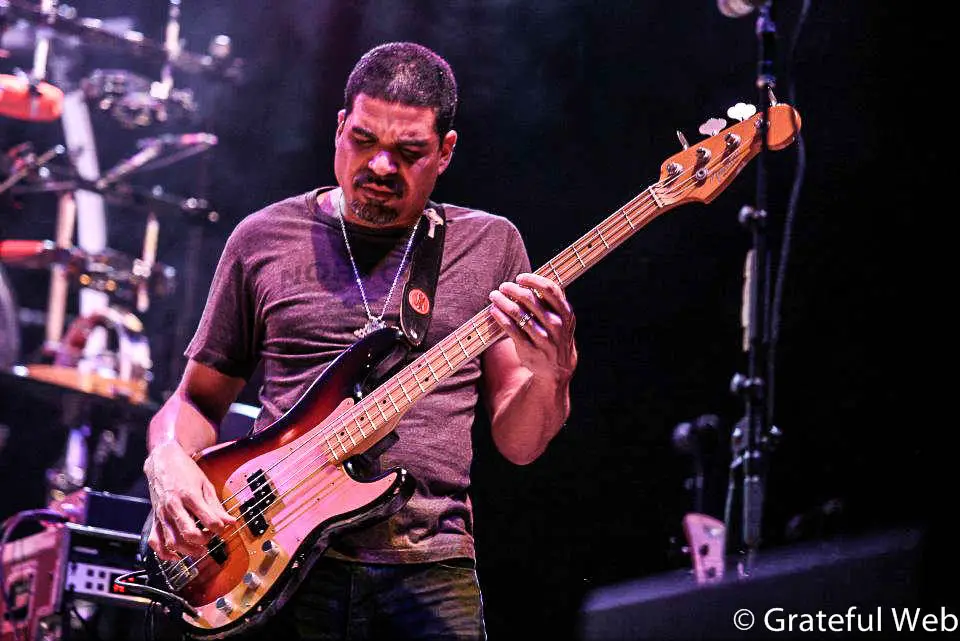
GW: When the Col. stepped away from Aquarium Rescue Unit, you stuck around and kept the band going. What was that period like?
OB: I remember it kind of being one of those things where you never know what’s going to work or not work. I just knew that I didn’t want to recreate him, and to just try and go in a different direction or let whatever the new thing was to be what it is and not try to make it what it was with the Col. Because people like that can’t be replaced. You can’t go get another weird guy like the Col. because there is no other weird guy like the Col. (laughter). So we were just trying to keep on playing and make a living, just trying to keep going.
GW: Speaking of making music together, are you guys planning on working up any new material for this summer, or mostly riding with the older stuff?
OB: You know, going into it I begged the guys, I said ‘please let’s do some new stuff, I’m tired of the old stuff,’ but when when we started playing together, I realized that I’m starting to hear the old stuff differently now and I can really change it, anyway. I didn’t feel as concerned with it all of the sudden once we finally got there. We did work on a couple of new things that day that we got together for the photo shoot, but you know, I don’t know if I’ll be pushing so hard to do so much new stuff as just go ahead and make the old stuff newer. We probably will do some new stuff anyway, because why not, but in the old days I was never concerned about it, and I realized I don’t really need to be concerned about it now. If you don’t like how it is, change it (laughter), so we’ll probably just change it, and it’ll feel brand new.
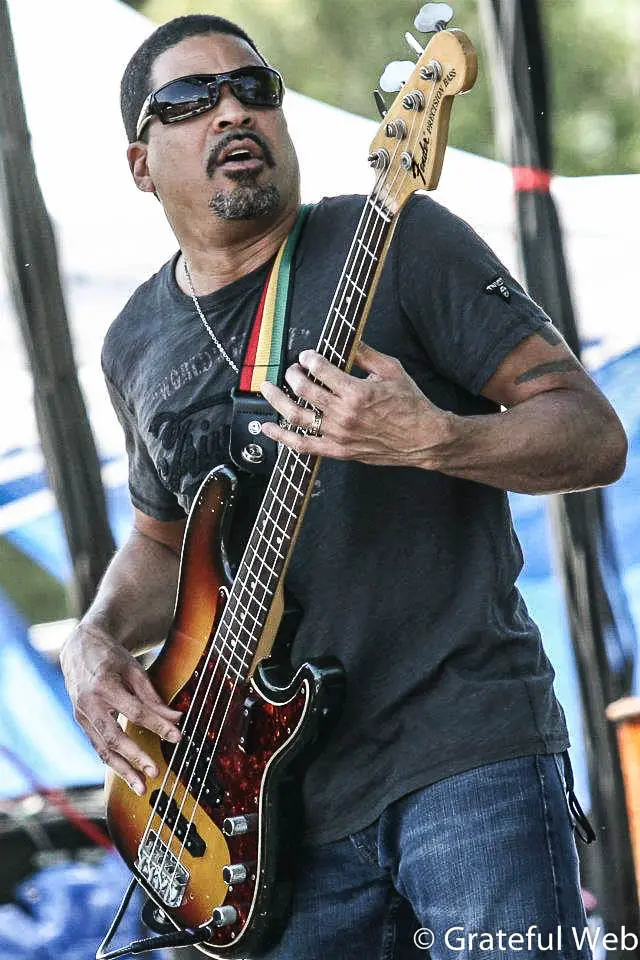
GW: And like you were saying, with that many years in between when the band first started and getting back together, and with all of the bands you’ve worked with, and Sipe and Herring, you know, you guys are bringing your newer influences, or more so experiences you’ve had since then to lend to direction.
OB: We’ve done some reunion shows before.
GW: Right, around 2007.
OB: And they were fun, but I felt like I didn’t want to get stuck there doing those old songs, but that’s just the wrong mindset. When we got there we just started laughing and the feeling we had together made all of my worries go away and it’s like, whatever, I’m sure we’ll come up with some new stuff on the spot. There’ll be songs made up on the spot, and we’ll probably do different things with the old stuff, and you know, I’m not worried about it (laughter).
GW: Absolutely.
OB: It’ll be fun.
GW: A free flowing environment, that’s cool to see.
OB: I am hoping to do some Grease Band stuff, that’s still my favorite stuff is the Hampton Grease Band. And the album Arkansas, there’s just something really mystical about that Arkansas record. But that Grease Band is just so…I don’t know how people wouldn’t get that. It’s so dynamic; it’s such a great piece of recorded work.
GW: I don’t know if I’ve listened to all of that.
OB: Oh my god dude, your life is completely about to change.
GW: Well I know what I’m doing this afternoon (laughter).
OB: Dude, go this afternoon and buy the record, get on Youtube, and then call me back, or text me, and you’ll see why Zappa and Duane Allman and Dickey Betts and all of these people were-and all of the people that worked with him over the years-you’ll find out why they did it. I mean, it’s just one of the best records of all time. When I first heard it and when I listen to it now I am completely laughing my head off and screaming and hollering. It’s just a great band, man. Mike Holbrook on bass, we have the same birthday.
GW: Weird.
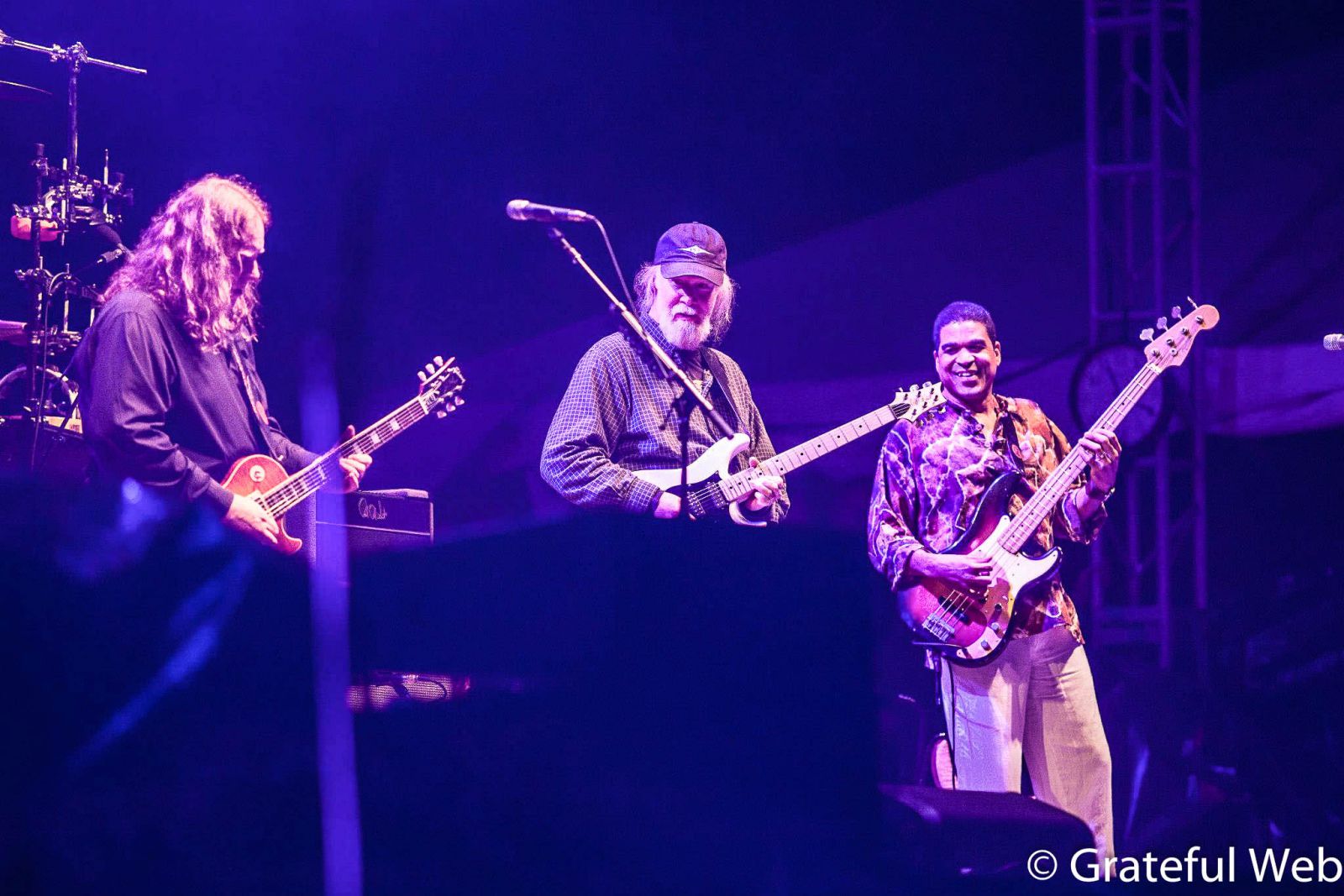
OB: Yeah man, it’s really great music, just really great music.
GW: I’ll definitely give it a listen and let you know.
OB: It’s called Music to Eat, by the Hampton Grease Band. Duane Allman was the one that got him that record deal so he could put that record out.
GW: Wow.
OB: Another connection in the web, as I say. No coincidences for me.
GW: There seem to be so many connections through all of the band members, these bands, would you say one of the ways you ended up with The Allman Brothers is through Col. Bruce, in a way?
OB: Absolutely, in a cosmic way, because what better preparation could I have for The Allman Brothers than by playing with the Col.? And the fact that Duane and Dickey were such fans of his, to the point where Duane got him that record deal to do a double album. I mean he got signed at Columbia for three hundred grand at Columbia in 1969.
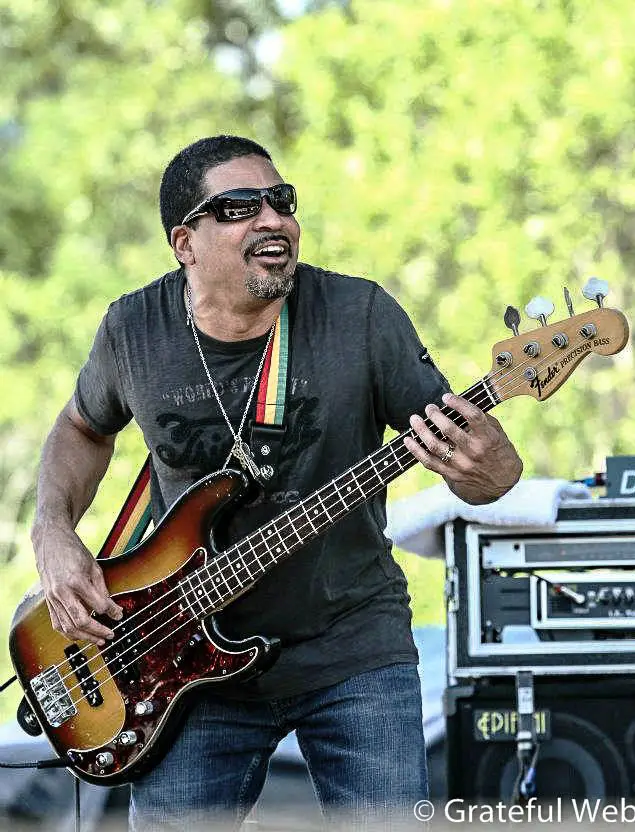
GW: That’s insane!
OB: Lynyrd Skynyrd got signed for nine grand (laughter), in 1969! I didn’t have any Allman Brothers albums when I got that gig, now I look back and go, oh yeah, we were mixing jazz, funk, R&B, bluegrass and blues, and Avant-garde-well, not Avant-garde, I don’t believe that’s what Bruce is. Bruce is an extraterrestrial; he’s not Avant-garde. People who play Avant-garde are trying to play like extraterrestrials like Col. Bruce and Sun Rah and Cecil Taylor and Ornette Coleman and Albert Ayler, but these people are not playing Avant-garde, they’re not from this planet (laughter)!
GW: They’re in their own little world.
OB: (laughter) It’s a whole other world! Way out there, many, many light-years, many thousands, perhaps millions of light years away to come here and give us some light and laughter. So I thought what great preparation, because The Allman Brothers were mixing funk, jazz, R&B, blues, country, and some out stuff, you know, and wow, I didn’t even see it coming. I could see no connection at the time, and now I think, oh my god you idiot, it’s part of the web!
GW: It’s all right there.
OB: Yeah, a direct connection right from Bruce and straight to me.
GW: That’s such a cool story. I didn’t realize the connections as far as that first album. You mentioned getting with ARU and initially wanting to do new stuff. Did that ever take place with the Allmans? I know you joined in 1997 and through the recent breakup. Did it ever get like that with The Allmans, where it felt like nothing new was necessarily coming through?
OB: Well it’s kind of the same thing, though slightly different, because when you have a band that achieved the level of success as the Allman Brothers, you have the de facto hits, which you have to play. People are coming to hear the soundtrack to the last carefree time in their lives, which is when they started paying bills and having kids and going to PTA meeting and all that. That’s the soundtrack to their rosy period in life, and people are always going to want to hear those songs. Fortunately they’re timeless songs and in the songs that have jams there are solo sections for us to do something completely different, so I never got tired of that. I’ll never get tired of “My Cross to Bear,” I’ll never get tired of “Please Call Home” or any of those songs, they’re just great songs and don’t lose their luster. Obviously it wasn’t the soundtrack to my youth (laughter), so from my perspective they’re just timeless songs. For both of those reason, or all three of those reasons, I’ve never had that problem with The Allman Brothers.
GW: I know you’d played with Derek in the Allmans and Tedeschdi Trucks, so you had that familiarity. Your brother Kofi was in TTB too. How did that work out, managing to play in both of those, with the Allmans and Tedeschi Trucks?
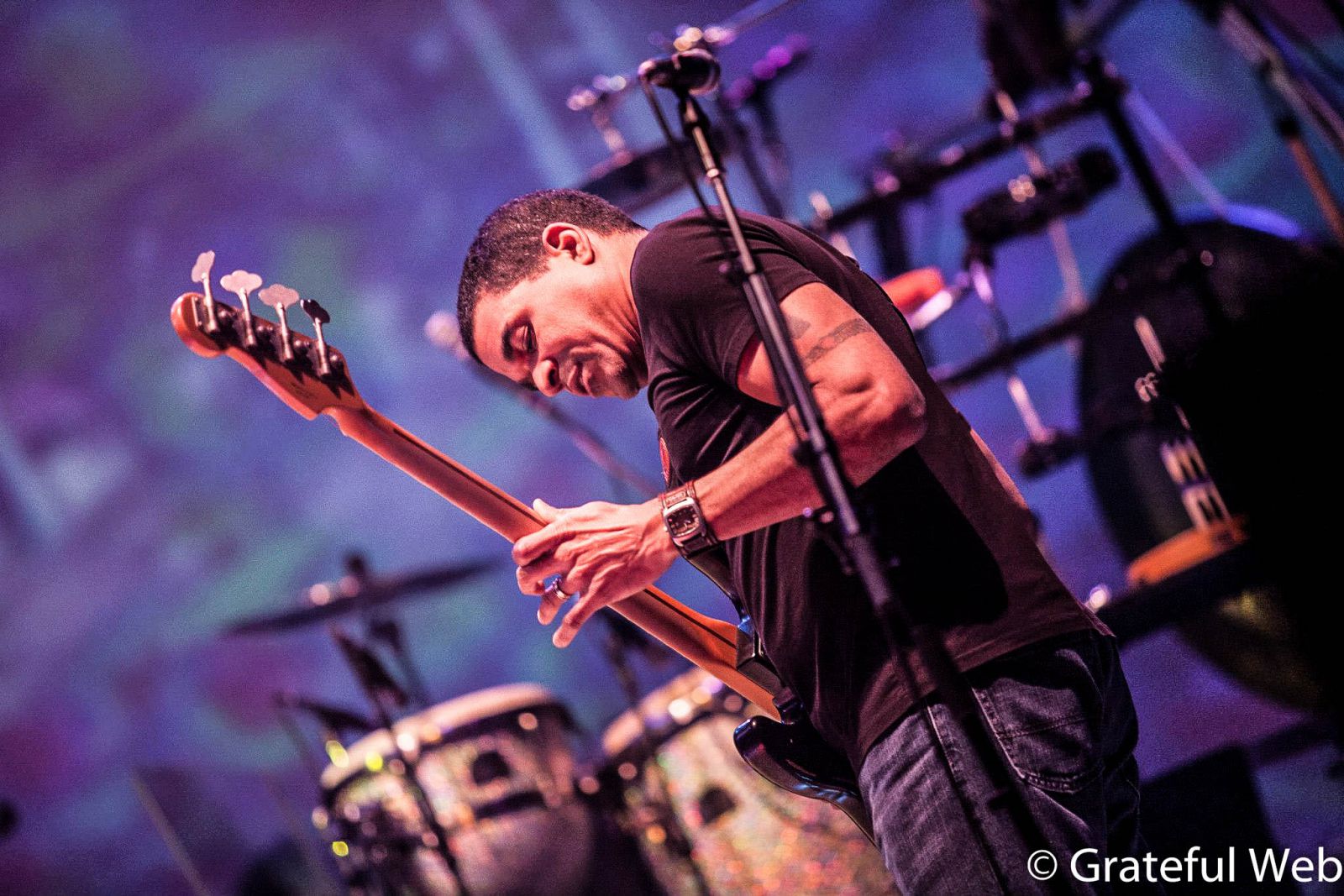
OB: Well, The Allman Brothers weren’t doing a lot of gigs anymore at that point. They’d been slowing down for a number of years. So we had plenty of time to do dates with TTB also, it wasn’t a problem trying to schedule it.
GW: Right, with the Allman Brothers doing the Beacon runs and not a lot of full tours.
OB: Yeah, they just weren’t doing fifty to sixty gigs a year anymore at that point. It was more like twenty, which leaves a lot of time open.
GW: I wanted to mention the Super Jams you’ve been a part of with Roosevelt Collier. I know you guys have come out to Colorado, I know you just did a gig in south Florida with Anthony Cole and Roosevelt and your brother, as well. What led to these? They really seem to have taken off within the past year or so.
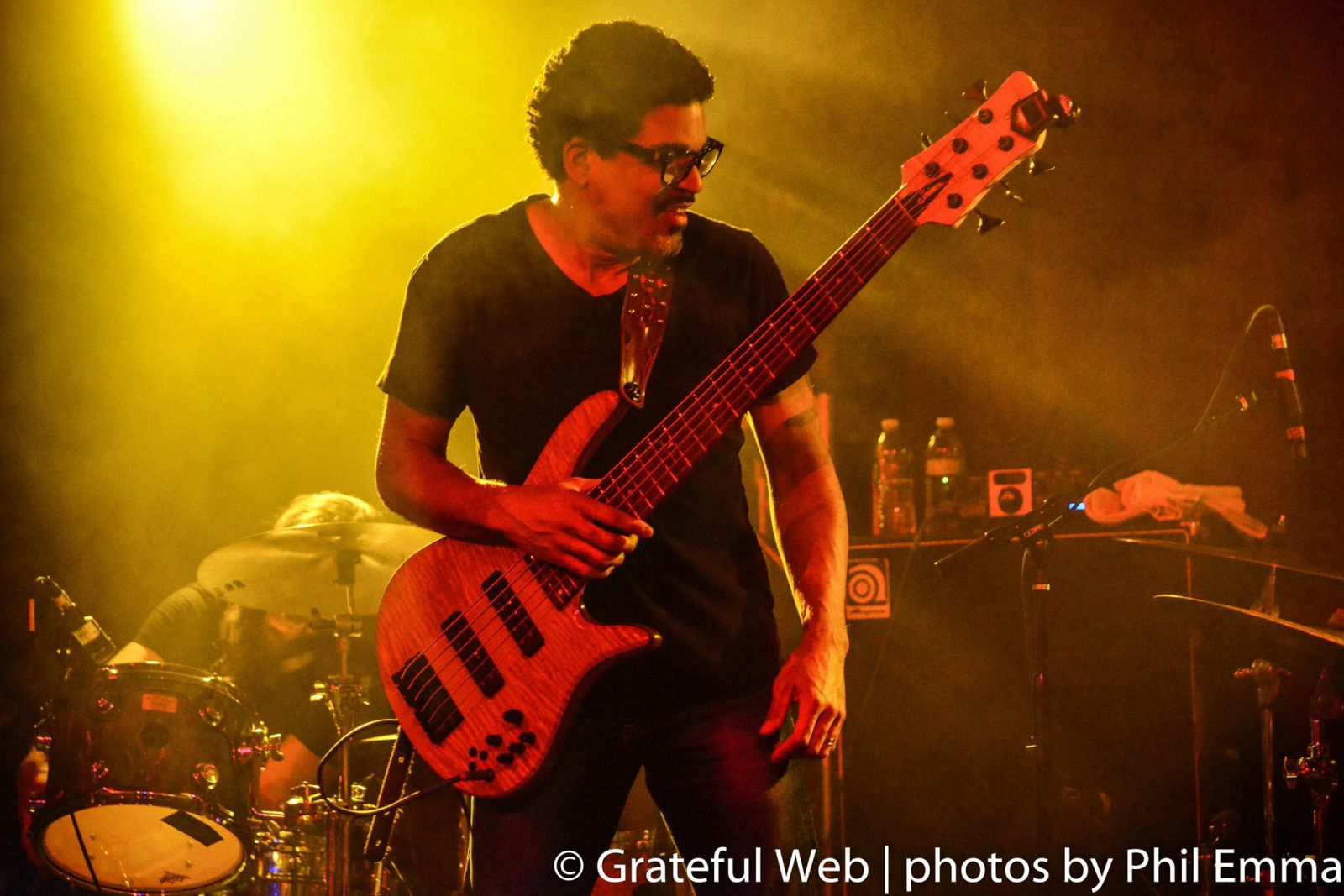
OB: Roosevelt and I have been wanting to work together for awhile, and we both had done super jams together down at New Orleans Jazz Fest and a lot of promoters are starting to put these things on, their dream bands. It’s a really great idea, because I’ve been getting to play with so many people. I’ve been playing with mostly the same small group of people the last seventeen years, and now its really expanded. And to play with so many great musicians in these jams, and having to learn a lot of new songs, it’s is a lot of fun.
GW: And when you say new songs are you doing mostly covers or do you do your own individual songs from your groups?
OB: Well some tunes are Soulive tunes. We’ll do a Soulive version of a cover, maybe, or an original that Krasno wrote or anyone else wrote, or the covers they like to do. And of course we make them all our own (laughter). I keep thinking, I hope they’re all on tape because when we get to the solo sections it’s like we’ve written three new songs by the time two soloists are done. All of those are great tunes and that’s not even the song we’re playing, we’re coming up with something new. It’s really fun because almost any tune is just an excuse to go off, whether it’s a cover or whether it’s your own. And I’m learning so many old funk covers, and I love funk, I’ve been into funk forever, but I’m realizing how little I know about it. I’ve been learning a lot of these way more obscure funk groups that I’ve never even heard of, like The Soul Vibrations, The Fatback Band (laughter), all of these different bands, The Whiteville Brothers. I’m like, wow, there’s a bottomless well of this funk stuff I didn’t even know about.
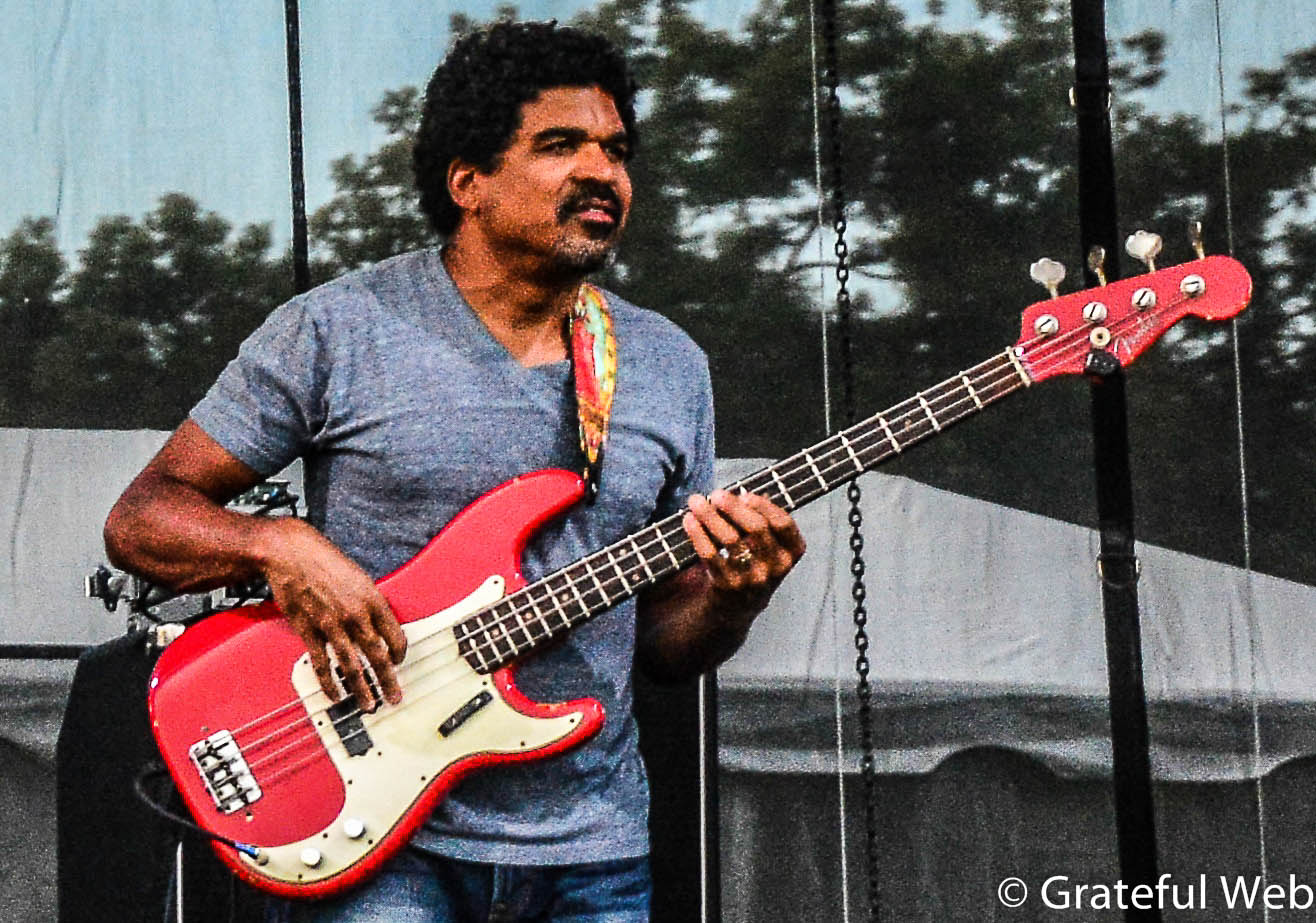
GW: I’ve got my homework cut out for me. You think you were missing out; I’ve got a lot to catch up on (laughter)!
OB: There’s so much out there no matter what track you take (laughter). That’s been so great. And getting to play with these players, I’m really grateful for this time in my life, its been so much fun.
GW: I actually heard about those South Florida Get Downs from Anthony Cole, and he was saying great things, and how fun they were.
OB: Matt Lapham, the bass player they usually use a lot, we started emailing and he sent me some of AC’s originals. Dude, that’s some of my favorite stuff I’ve ever heard, ever! Stevie Wonder-anybody-ever. I really, really want to play in a band with him and do his originals. That stuff is so amazing. It’s been so great, all the people like that you find out about with these. It just opens up so many new things to you, if you weren’t familiar with a band before.
GW: It seems cool, and I know the crowd loves it. It’s got that spirit of Jazz Fest, Jam Cruise.
.jpg)
OB: Jam Cruise to me is like Jazz Fest on the water (laughter).
GW: Once you left TTB and settled in Atlanta, you started working on a solo album, Water in the Desert. How long has that been in the works and when can we expect to hear it?
OB: I’ve been working on it for like seven years (laughter), but my biggest project was trying to start a family with my wife, and we just had a baby boy three months ago.
GW: Congratulations!
OB: Thank you. So that’s dominating my time now. And between doing homework and learning songs for the next gig, interviews and being a dad and husband with a newborn, it just sets me back again. So I don’t know when it’s going to come out, but we only have about four songs left to mix or something like that (laughter), so slowly but surely getting down to the end of it.
GW: Now is that going to be a Peacemakers CD or is this your own Oteil Burbridge-thing?
OB: It’s not Peacemakers because the Peacemakers were Marc Kimbrell, Chris Fryar, and Matt Slocum. So to me, without those guys, it’s not the Peacemakers, it’s an Oteil record. It’s really more featuring Kofi and the singers, Alfreda Gerald and David Ryan Harris and Mark Rivers, more so it’s them featuring me, it’s me trying to get a little better at writing lyrics, hopefully a lot better, and just where my head was at, the things that were on my mind at the time and much less of a bass feel record.
GW: You’ve got the vocalists, but are you going to sing on it at all?
OB: No. I have, but the singers I like are so much better than me. And I have people asking me to sing, like Adam Deitch. He said, ‘you should really sing, I know you don’t like your voice and you think there are all of these singers that are better than you, but dude, Hendrix hated his voice too, so just do it.’ And I’ve had some other people ask me, so maybe I will. I don’t mind doing it live, I probably will again at some point, somebody will talk me into it.
GW: With all of the side projects, all of these bands you’re in and playing with, and the family life that’s taking hold, where’s your focus musically right now, besides the get downs, ARU and the new album?
.jpg)
OB: You know, I’m just taking things as they come. My whole focus is on my kid and my wife and right now I’m just trying to make a living and be able to have more time at home, which is a hard thing because the more I’m home, the less money I have. The more money I have, the less time I have with my son. So it’s one of those things where I’ve been really lucky in getting a lot of weekend work, and not long tours. I’m really fortunate. So work wise I’m just really taking it as it comes. As far as musically, where my head’s at, I want to do my banjo record and sit around and play banjo. That’s what I want to do. You know, if I had forty million dollars I would be doing my banjo band (laughter). We’d be doing my Afro-Billy, African grooves with Kofi Burbridge harmonies and vocals and Lamar Williams Jr., who is the son of the bass player that replaced Barry Oakley in The Allman Brothers, he’s doing all of the vocals and lyrics for my Afro-Billy project, but I don’t really have time to do that like I would like to. You know, to help my wife raise our son and to make a living. I’ve been so lucky with the super jams, because I’m honestly still having my cake and eating it too. A lot of these are super jam weekends; it’ll be a Phish after party, or a Grateful Dead after party or a Widespread Panic after party, Jazz Fest or Jam Cruise or whatever. Jam Cruise is actually the longest I had to be away from my family (laughter), except for New Orleans Jazz Fest, but they came down for that so that was cool. I’m basically just canoeing along with the slow of the river with my wife and baby in the canoe and trying not to lose my paddle (laughter).
GW: It’s amazing, because in such a touring dominated industry these days, it’s nice to be able to fly out and do those weekends and not being on these marathon tours like TTB.
OB: I think a lot of people are starting to get hip to the weekend; the country guys have been doing it for a long time.
GW: Oh yeah, the weekend warriors.
OB: Because they have families. It’s like, let’s go play this weekend and go home. So hopefully more of it will be going that ways, but I am lucky to be doing it right now and I feel very grateful that the minutes with my baby boy are just incredible.
GW: What’s his name, if you don’t mind?
OB: Nigel Mandela Burbridge.
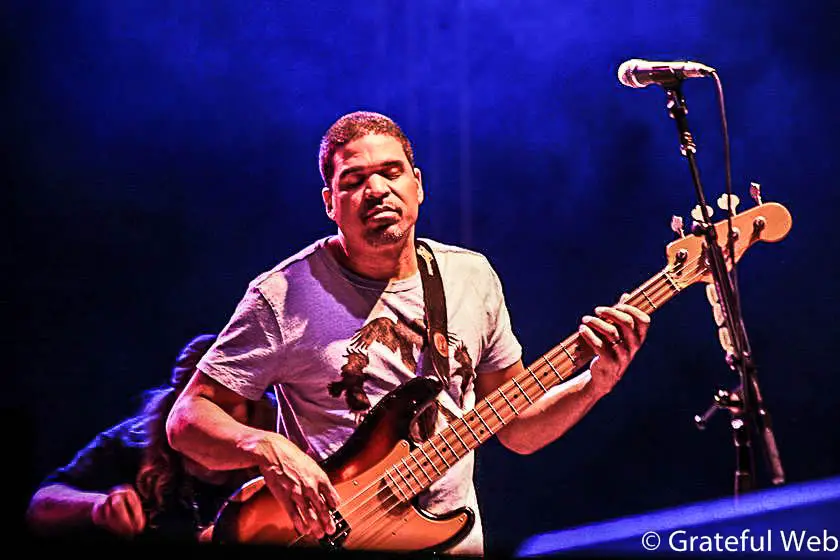
GW: I don’t want to take up too much more of your time, so congratulations once again! I’m looking forward to catching you guys, ARU, this summer in early august in Boulder and Denver, glad I’ll be in town for those. And I’ll let you know what I think of those Col. Bruce albums.
OB: Dude! There’s this one song, “Hendon.” It’s listed as three parts, and the first part is called spray-paint. So they’re doing a double album on Columbia Records, have this huge deal in 1969, and they hadn’t finished the lyrics to the song yet so he picked up a can of spray-paint and sang the warning label on the spray-paint can at the top of his lungs. It’s the best song. It’s a minute and twenty-seven seconds of pure genius. You’re going to lose it; I lose it every time I hear it. It never gets old, it’s so funny.
GW: Well I’m on it this afternoon.
OB: Do it! Go back and forth between him and BB King and you’ll have had your church for the next year (laughter).
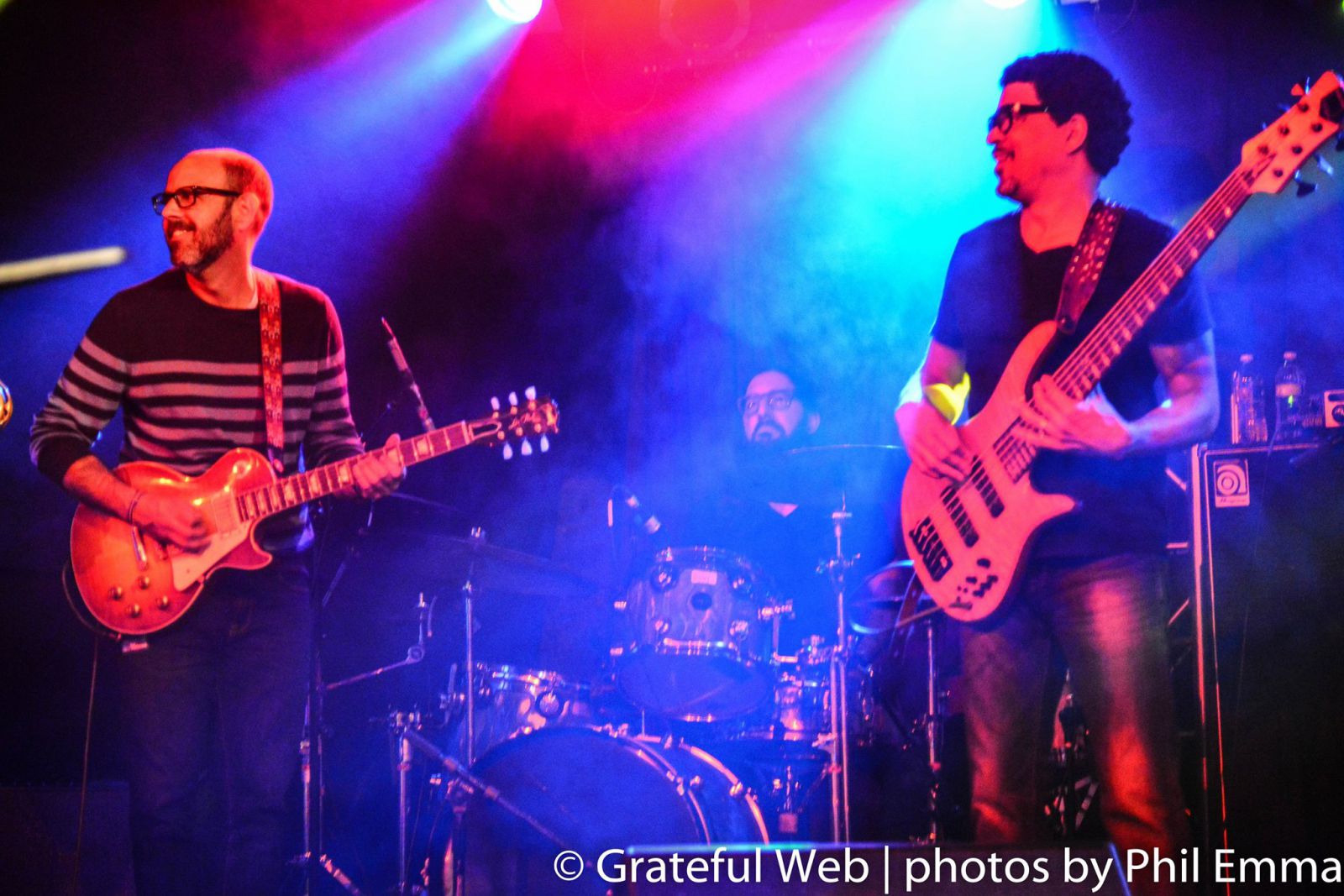
GW: (laughter) Hell yes! Thanks again for taking the time Oteil and I’m looking forward to catching you soon.
OB: Absolutely, it was my pleasure.






